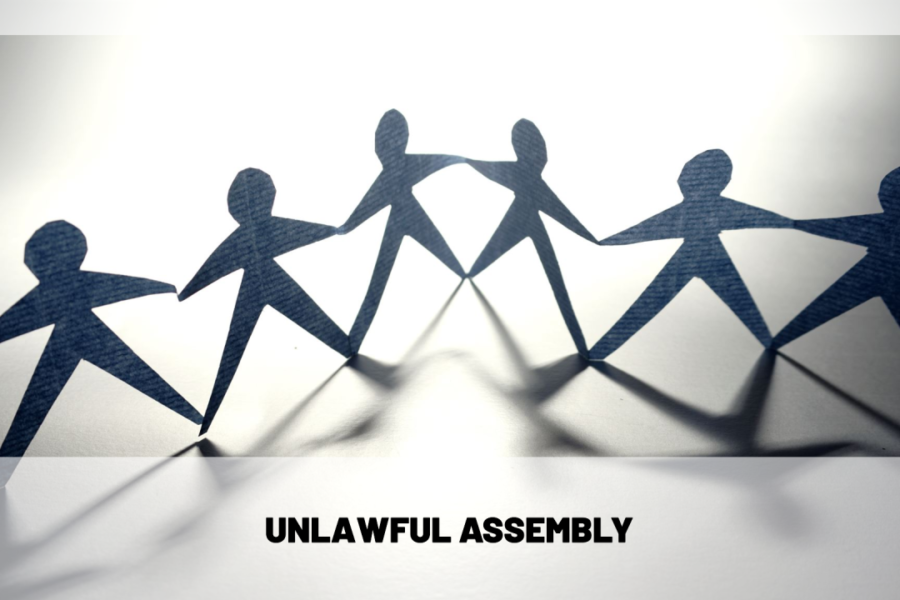Civilised societies have an objective since their genesis to be in a order and ensure peaceful existence. With this view, the law of the land, being a tool to regulate and control the society, provide certain provisions which ensure the compliance of public peace, order and Public Tranquility. Public Order and Tranquility is such a vital component of this modern society that even the Constitution of India, ensures the same through restricting the Right to Freedom, as provided under Article 19. However, in this Article we will only have a look over the provisions as provided under the CrPC and BNSS.
Provisions as provided under the Code of Criminal Procedure, 1973 (Cr.P.C.) and Bharatiya Nagrik Suraksha Sanhita, 2023 (BNSS)
Chapter X of the Cr.P.C. deals with ‘Maintenance of Public Order and Tranquility’. Sections 129-132 provide authority to an Executive Magistrate, Officer in-charge of a Police Station and in the absence of an Executive Magistrate, even to an officer of the Armed Forces, to implement his authority to disperse an unlawful assembly gathered at a place, by using civil force or the armed forces, wherever required.
Section 129 (Section 148 BNSS) lays that any Executive Magistrate or office in charge of a police station or, in the absence of such officer in charge, any police officer, who is not below the rank of a sub-inspector, may command any unlawful assembly, or any assembly of five or more persons likely to cause a disturbance of the public peace, to disperse; and it shall thereupon be the duty of the members of such assembly to disperse accordingly. If the situation persists which makes such magistrate or the officer to believe that the assembly is not ready to disperse, such assembly may be dispersed by using force. The officer may also require any person to assist him in such dispersal and if necessary, those persons may even be arrested and confined in order to get them punished according to the provisions of the law.
Section 130 (Section 149 BNSS) empowers the Executive Magistrate of the highest rank present (District Magistrate or any other executive magistrate as authorised by him), to cause such dispersal by the use of Armed Forces if the dispersal is necessary and cannot be dispersed by the use of civil force, and if needed, may arrest them and get them punished as per the law.
Section 131 (Section 150 BNSS) provides that a commissioned officer of the Armed Forces if present at the situation and the Executive Magistrate cannot be contacted immediately; he may disperse the assembly by using the members of the force under his command and arrest them in order to get them punished. However, it is notable that if the executive magistrate is practicable to be contacted, he shall first contact the Executive Magistrate and shall act according to his instructions in that regard.
The meaning of term ‘unlawful assembly’ may be derived through the definition as given under Section 141 of the Indian Penal Code (Section 189(1) BNS). It defines such assembly as an assembly of five or more persons, if the common object of the persons composing that assembly is:
- To overawe by criminal force, or show of criminal force, against the Central or any State Government or Parliament or the Legislature of any State, or any public servant in the exercise of the lawful power of such public servant; or
- To resist the execution of any law, or of any legal process; or
- To commit any mischief or criminal trespass, or other offence; or
- By means of criminal force, or show of criminal force, to any person to take or obtain possession of any property, or to deprive any person of the enjoyment of a right of way, or of the use of water or other incorporeal right of which he is in possession or enjoyment, or to enforce any right or supposed right; or
- By means of criminal force, or show of criminal force, to compel any person to do what he is not legally bound to do, or to omit to do what he is legally entitled to do.
The persons committing an offence as a part of unlawful assembly under a common object are liable to be punished under Section 143 of the Indian Penal Code, 1860 (189(2) BNS
Contributed by: Shivam Mani Tripathi (Advocate)

